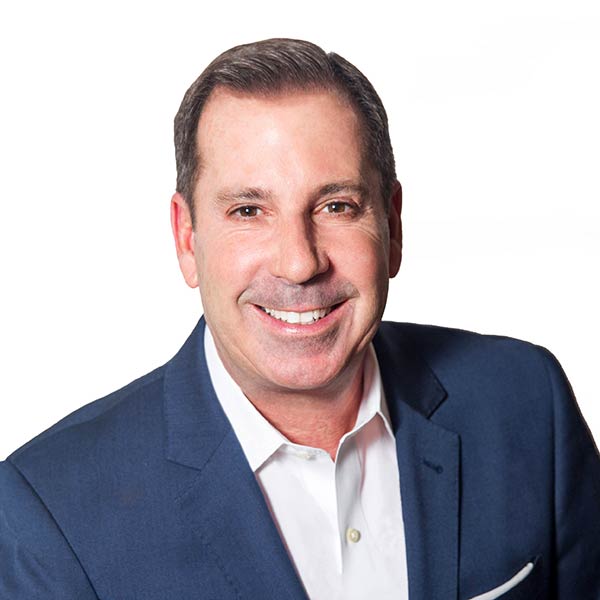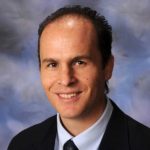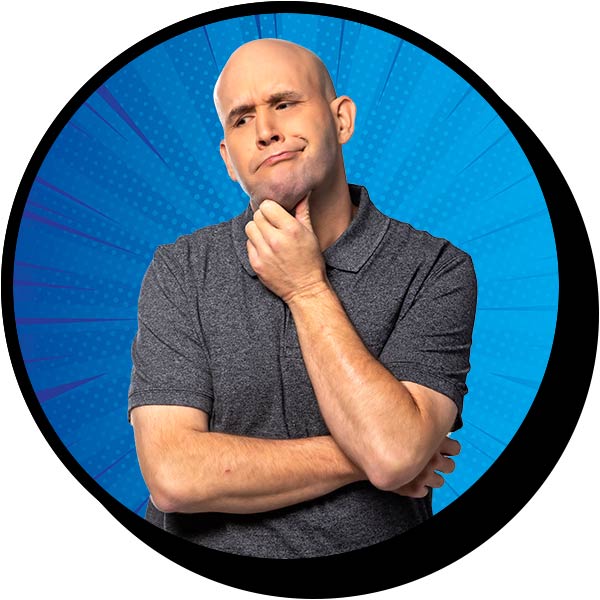by Mark Sanna, DC, ACRB Level II, FICC •
CEO, Breakthrough Coaching •
We live in a digital time. Our rhythms are rushed, rapid fire and relentless, our days carved up into bits and bytes. We celebrate quick reaction more than considered reflection. We skim across the surface, alighting for brief moments at dozens of destinations but rarely remaining for long at any one. We race through our lives without pausing to consider who we really want to be or where we really want to go. We’re wired up but we’re melting down. This white paper will review four vital principles for maintaining your energy and motivation in practice.
Most of us are just trying to do the best that we can. We survive on too little sleep, wolf down fast foods on the run, fuel up with coffee and cool down with alcohol and sleeping pills. Faced with relentless demands at work, we become short-tempered and easily distracted. We return home from long days at work feeling exhausted and often experience our families not as a source of joy and renewal, but as one more demand in an already overburdened life.
Consider these scenarios:
- You attend an hour-long Team Meeting in which not a single second is wasted – but during the final half hour your energy level drops off and you struggle to stay focused.
- You race through a meticulously scheduled four-hour shift but by midway your energy has turned negative-impatient, edgy and irritable.
- You set aside time to be with your children when you get home at the end of the day, but you are so distracted by thoughts about work that you never really give them your full attention.
- You remember your wedding anniversary – your computer alerts you and so does your smart device– but by the evening, you are too tired to go out and celebrate.
Energy, not time is the fundamental currency of high performance.
This insight revolutionized my thinking about what drives enduring high performance. It has also prompted a dramatic transformation in the way I coach my clients to manage their lives, personally and professionally. Everything they do – from interacting with patients and staff to spending time with their families – requires energy. Obvious as this seems, we often fail to take into account the importance of energy at work and in our personal lives. Without the right quantity, quality, focus, and force of energy, we are compromised in any activity we undertake.
Performance, health, and happiness are grounded in the skillful management of energy.
There are undeniably difficult patients, tough days, bad relationships and real-life crises. Nonetheless, we have far more control over our energy than we realize. The number of hours in a day is fixed, but the quantity and quality of energy available to us are not. It is our most precious resource. The more we take responsibility for the energy we bring to the world, the more empowered and productive we become. The more we blame others or external circumstances, the more negative and compromised our energy will be.
If you could wake up tomorrow with significantly more positive, focused energy to invest in your practice and with your family, how significantly would that change your life for the better? As a leader and a manager, how valuable would it be to bring more positive energy and passion to your practice? If your practice team could call on more positive energy, how would it affect their relationships with one another and the quality of service that they deliver to your patients?
To be fully engaged, we must be physically energized, emotionally connected, mentally focused and spiritually aligned with a purpose beyond our immediate self-interest. Full engagement begins with feeling eager to get to the practice in the morning, equally happy to return home in the evening and capable of setting clear boundaries between the two. It means being able to immerse yourself in the mission you are on, whether it is grappling with a frustrating challenge in the practice, managing your practice team on a project, spending time with loved ones or simply having fun. Full engagement implies a fundamental shift in the way we live our lives
You must become fully engaged. Four key energy management principles drive this process.
Principle 1: Full engagement requires drawing on four separate but related sources of energy: physical, emotional, mental and spiritual.
Human beings are complex energy systems, and full engagement is not simply one-dimensional. The energy that pulses through us is physical, emotional, mental, and spiritual. All four dynamics are critical, none is sufficient by itself and each profoundly influences the others. To perform at our best, we must skillfully manage each of these interconnected dimensions of energy. Subtract any one from the equation and our capacity to fully ignite our talent and skill is diminished, much the way an engine sputters when one of its cylinders misfires.
The more toxic and unpleasant the energy, the less effectively it serves performance; the more positive and pleasant the energy, the more efficient it is. Imagine for a moment that you are about to have a chiropractic adjustment. Which energy quadrant would you want your chiropractor to be in? How would you feel if he entered the adjusting room feeling angry, frustrated and anxious? What if he was disengaged, laid back and slightly spacey? Obviously, you want your chiropractor energized, confident and upbeat.
Principle 2: Because energy capacity diminishes both with overuse and with underuse, we must balance energy expenditure with intermittent energy renewal.
We rarely consider how much energy we are spending because we take it for granted that the energy available to us is limitless. In fact, increased demand progressively depletes our energy reserves – especially in the absence of any effort to reverse the progressive loss of capacity that occurs with age. By training in all dimensions, we can dramatically slow our decline physically and mentally, and we can actually deepen our emotional and spiritual capacity until the very end of our lives.
When we live highly linear lives – spending far more energy than we recover or recovering more than we spend – the eventual consequence is that we break down, burn out, atrophy, lose our passion and get sick. Sadly the need for recovery is often viewed as a sign of weakness rather than as an integral aspect of sustained performance. The result is that we give almost no attention to renewing and expanding our energy reserves, individually or for our practice.
To maintain a powerful pulse in our lives, we must learn how to rhythmically spend and renew energy.
The richest, happiest and most productive lives are characterized by the ability to fully engage in the challenge at hand, but also to disengage periodically and seek renewal. Instead, many of us live our lives as if we are running in an endless marathon, pushing ourselves far beyond healthy levels of exertion. We become flat liners mentally and emotionally by relentlessly spending energy without sufficient recovery. We become flat liners physically and spiritually by not expending enough energy. Either way, we slowly but inexorably wear down.
Think for a moment about the look of many long-distance runners: gaunt, sallow, slightly sunken and emotionally flat. Now visualize a sprinter. Sprinters typically look powerful, bursting with energy and eager to push themselves to their limits. The explanation is simple. No matter how intense the demand they face, the finish line is clearly visible 100 or 200 meters down the track. We too must learn to live our lives as a series of sprints – fully engaging for periods of time and then fully disengaging and seeking renewal before jumping back into the fray to face whatever challenges confront us.
Principle 3: To build capacity, we must push beyond our normal limits, training in the same systematic way that elite athletes do.
Stress is not the enemy in our lives. Paradoxically, it is the key to growth. In order to build strength in a muscle, we must systematically stress it, expending energy beyond normal levels. Doing so literally causes microscopic tears in the muscle fibers. At the end of a training session, functional capacity is diminished. But give the muscle twenty-four to forty-eight hours to recover, and it grows stronger and better able to handle the next stimulus. While this training phenomenon had been applied largely to building physical strength, it is just as relevant to building “muscles” in every dimension of our lives – from empathy and patience to focus and creativity to integrity and commitment. What applies to the body applies equally to the other dimensions of our lives.
We build emotional, mental and spiritual capacity in precisely the same way that we build physical capacity.
We grow at all levels by expending energy beyond our ordinary limits and then recovering. Expose a muscle to ordinary demand and it won’t grow. With age, it will actually lose strength. The limiting factor in building any muscle is that many of us back off at the slightest hint of discomfort. To meet increased demand in our lives, we must learn to systematically build and strengthen muscles wherever our capacity is insufficient. Any form of stress that prompts discomfort has the potential to expand our capacity – physically, mentally, emotionally or spiritually – so long as it is followed by adequate recovery.
Principle 4: Positive energy rituals – highly specific routines for managing energy – are the key to full engagement and sustained high performance.
Change is difficult. We are creatures of habit. Most of what we do is automatic and unconscious. What we did yesterday is what we are likely to do today. The problem with most efforts to change is that conscious effort can’t be sustained over the long haul. Will and discipline are far more limited resources than most of us realize. If you have to think about something each time you do it, the likelihood is that you won’t keep doing it for very long. The status quo has a magnetic pull on us.
A positive ritual is a behavior that becomes automatic over time – fueled by some deeply held value.
I use the word ritual purposefully to emphasize the notion of a carefully defined, highly structured behavior. In contrast to will and discipline, which requires pushing yourself to a particular behavior, a ritual pulls at you. Think of something as simple as brushing your teeth. It is not something that you ordinarily have to remind yourself to do. Brushing your teeth is something to which you feel consistently drawn, compelled by its clear health value. You do it largely on automatic pilot, without much conscious effort or intention. The power of rituals is that they ensure that we use as little conscious energy as possible where it is not absolutely necessary, leaving us free to strategically focus the energy available to us in creative, enriching ways.
Look at any part of your life in which you are consistently effective and you will find that certain habits help make that possible. If you eat in a healthy way, it is probably because you have built routines around the food you buy and what you are willing to order at restaurants. If you are fit, it is probably because you have regular days and times for working out. If you manage your practice team well, you likely have a style of giving feedback that leaves people feeling challenged rather than threatened. If you are closely connected to your spouse and your children, you probably have rituals around spending time together with them. Creating positive rituals is the most powerful and effective way to manage energy in the service of full engagement.
About Breakthrough Coaching
Breakthrough Coaching Members are consistently among the highest earners in their professional communities. They have increased income, decreased stress, and more free time to pursue those activities that they enjoy the most.
You’ll work with a Personal Coach who…
- Teaches from experience. Before becoming a coach, your coach was a successful Breakthrough Coaching Member and mastered the procedures and systems that you and your team are learning.
- Customizes the Breakthrough Coaching program based upon your practice goals, expectations, and philosophy enabling you to grow at your own pace.
- Provides you with an outside, independent perspective. It’s tough to see the frame when you are in the picture!
- Assures you that you are not alone. It’s easy to become isolated in practice. Your Coach is accessible whenever you need a real-world perspective on the important issues impacting your practice.
- Acts as an extension of your HR Department assisting in the hiring, and training of your practice team members.
- Experience it in person! Fill out our Practice Analysis Survey and we’ll schedule a complimentary coaching session.










 ▶︎
▶︎  Why is the Discount Challenge prize amount $15,024? Because that is the average “per-occurrence” fine for Medicare inducements. That’s not $15,024 per patient, that’s not per provider, that’s PER VISIT. Stinks, doesn’t it? To us, the prize amount is worth the investment if we can help our profession better understand proper discounting.
Why is the Discount Challenge prize amount $15,024? Because that is the average “per-occurrence” fine for Medicare inducements. That’s not $15,024 per patient, that’s not per provider, that’s PER VISIT. Stinks, doesn’t it? To us, the prize amount is worth the investment if we can help our profession better understand proper discounting.